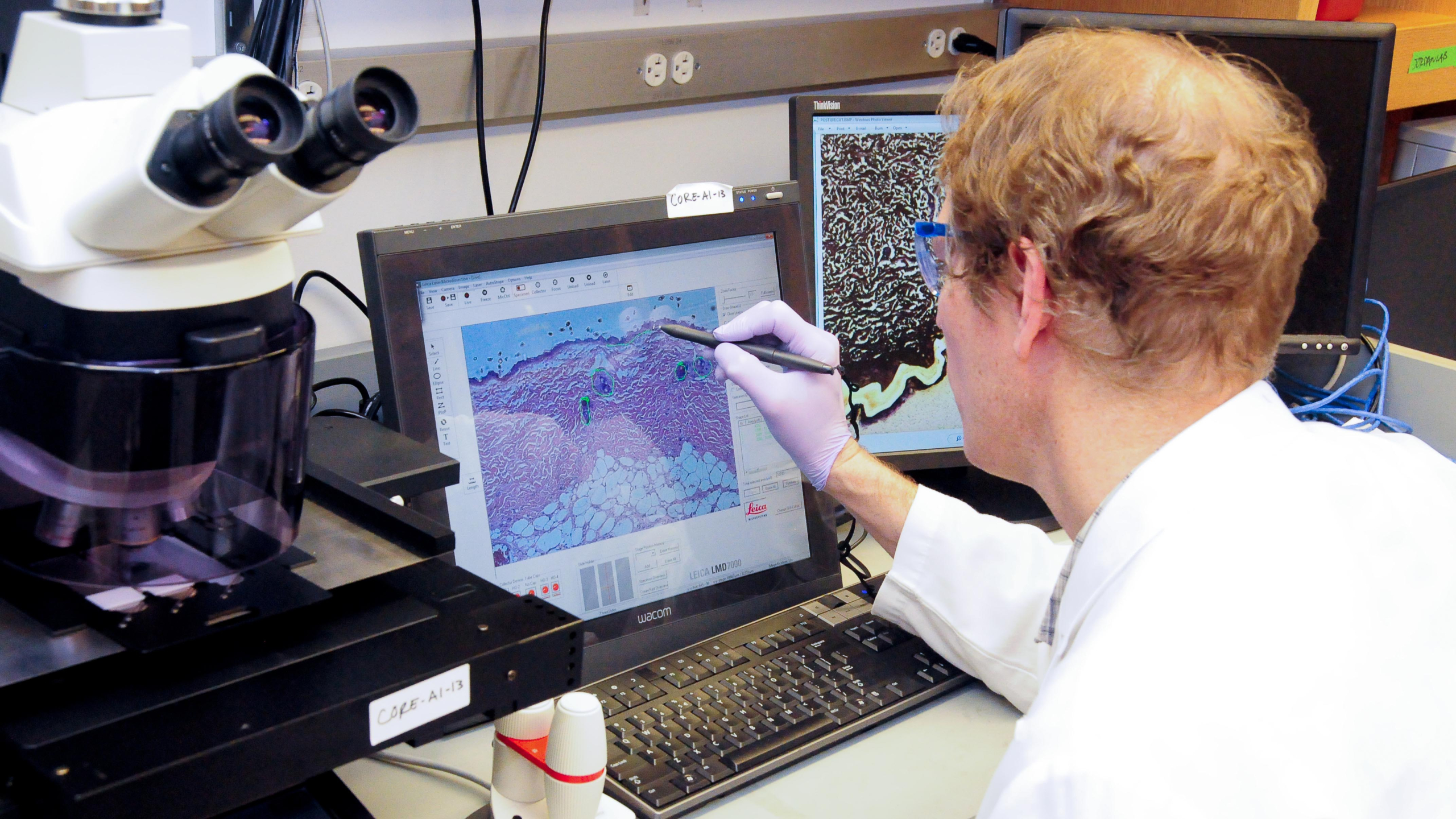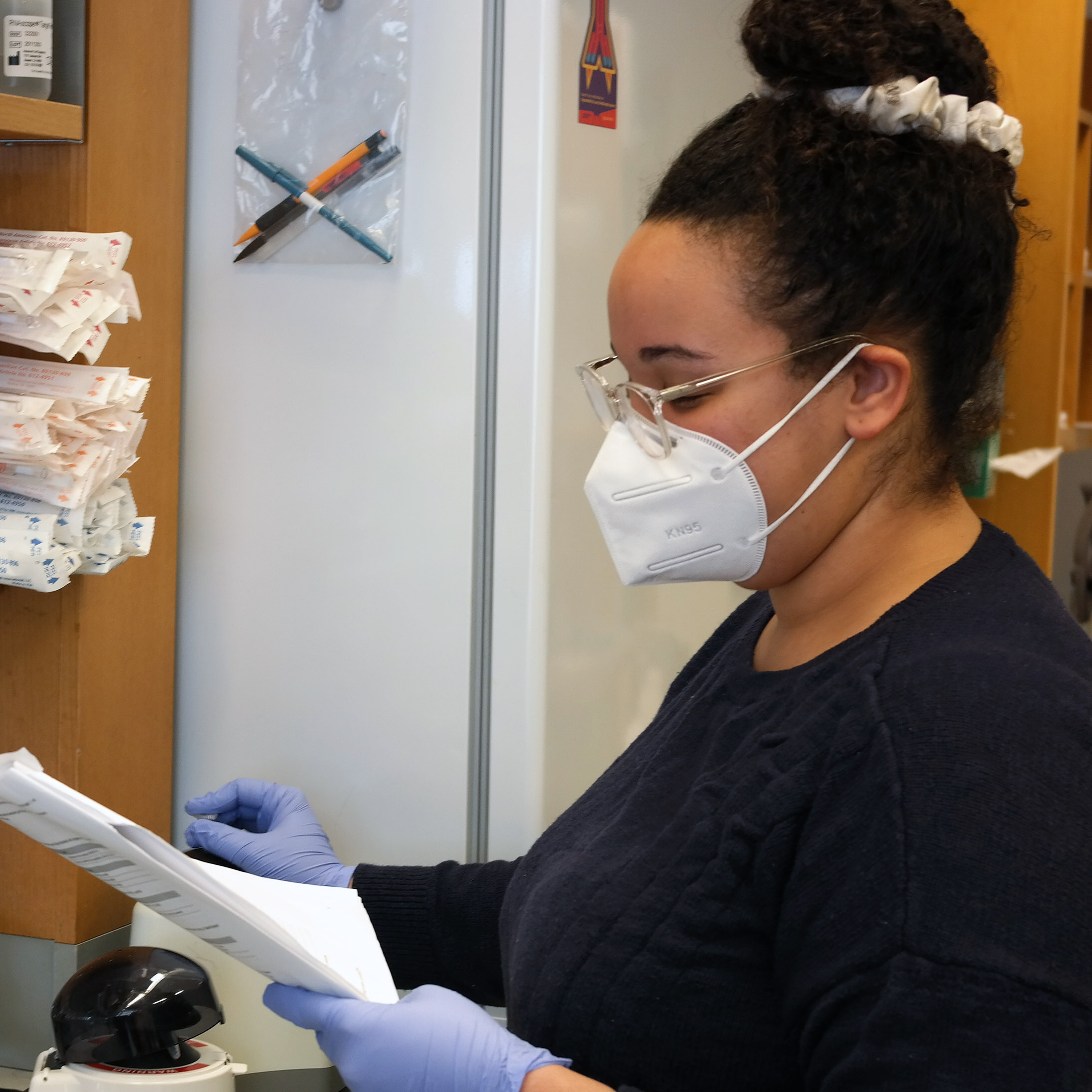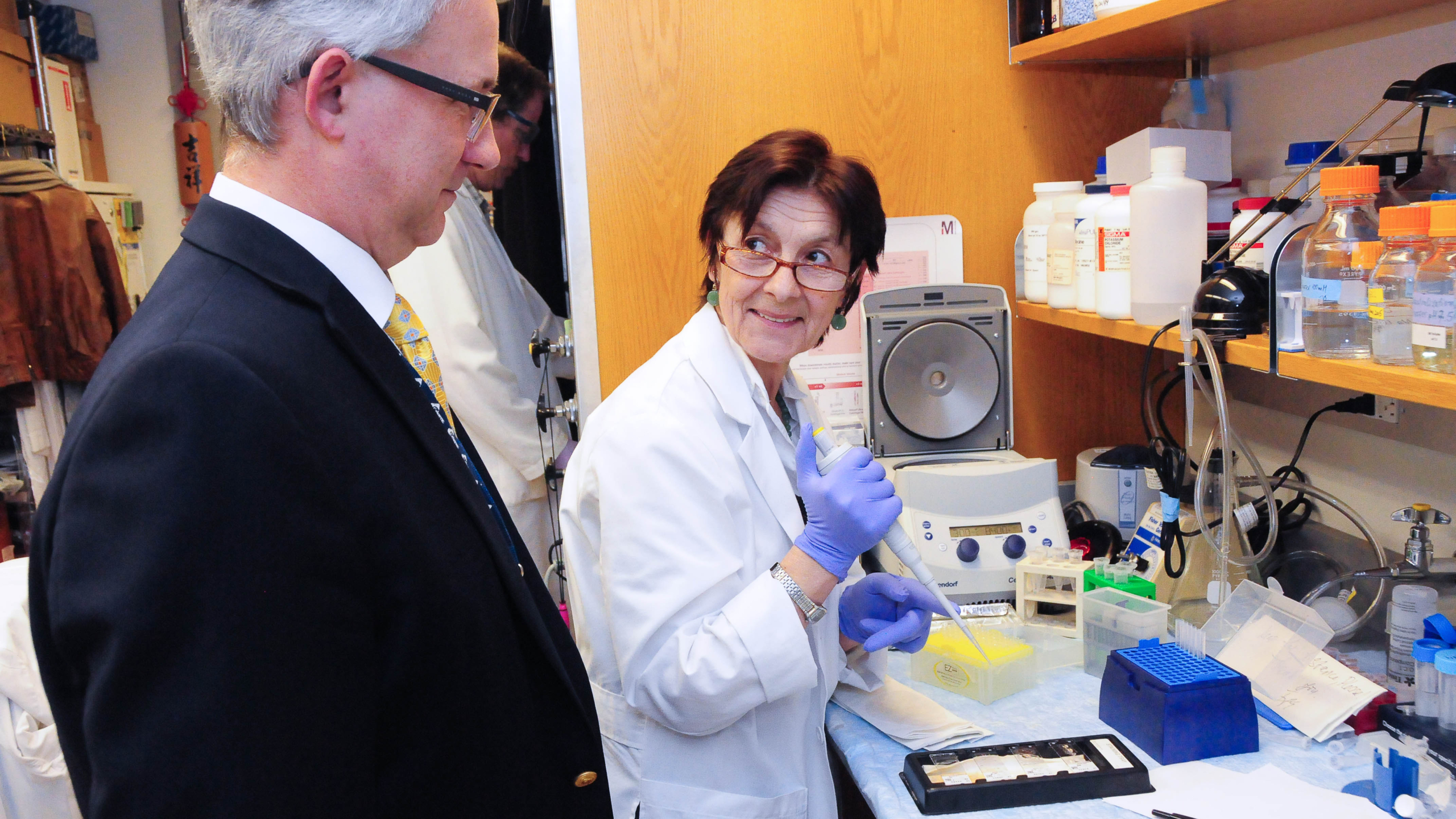Postdoctoral & Predoctoral Research Fellowships
The Department of Dermatology at the University of Pennsylvania has a long history of successful research in cutaneous biology and, more recently, in clinical epidemiology. In addition to other funding sources, our NIH T32 Dermatology Training Grant funds 4 post-doctoral and 3 pre-doctoral fellows per year. NIH T32-funded positions are limited to US citizens and permanent residents. Applications from minority, disabled, or economically disadvantaged applicants are particularly encouraged to apply. See the NIH website for more information on diversity in extramural programs.
Each Research Fellow works under the direction of a faculty mentor, or Trainer. In addition, each Fellow takes part in enrichment activities including departmental research seminars, a trainee research day, mentoring and advising, and career development workshops. The University also provides a Research Fellowship infrastructure that includes benefits and special seminars covering multiple areas such as safe laboratory techniques, ethics, grant writing, career opportunities, and others.
Our goal is to train Research Fellows to become independent investigators in either academics or industry
Skin diseases are extremely prevalent, represent a significant health burden, and predispose individuals to systemic conditions such as inflammatory diseases and heart disease. The goal of this training program is to identify and train the next generation of leaders in cutaneous biology, skin diseases, and dermatoepidemiology.
Our program involves 36 highly qualified Trainers drawn from the Department of Dermatology and from other schools and departments across the University of Pennsylvania. Trainers are grouped into focus areas based on expertise and types of projects available to trainees. These focus areas include:
- Development, regeneration, hair follicles/adnexal, cell biology
- Inflammation, autoimmunity, immunity, microbiome, infection
- Epidemiology, patient-oriented research, clinical trials, medicalinformatics
- Epithelial differentiation, proliferation, carcinogenesis
- Skin ‘omics & informatics
Number of Positions per Year:
Up to 3 pre-doctoral and 4 post-doctoral fellowships
Program Benefits:
Postdoctoral Appointees
-
- Stipends and benefits are in accordance with the University of Pennsylvania’s Postdoctoral Benefits Policy
- NIH T32-funded positions are limited to US citizens and permanent residents.
- Education/Training Requirements:
- Pre-doctoral fellowships: must be currently pursuing PhD, MD, MD PhD, VMD PhD, MD MSCE, or equivalent degrees.
- Post-doctoral fellowships: require a minimum of an MD or PhD degree.
- Appointees must be fully committed to conducting a minimum of 1 year of research. Requests for less than 12 months appointment will not be considered.
- Appointees are required to participate in Dermatology Training Program activities, including:
- Trainee seminars
- Mentoring meetings with the program directors
- Professional development workshops (eg. grant-writing)
- Present their research at Dermatology Tuesday Research Seminar Series and the annual Dermatology Research Day.
- Submit annual progress reports
- Post-doctoral trainees and fellows are required to engage in 2 years of research, teaching, or health-related activities. See https://grants.nih.gov/grants/policy/nihgps/html5/section_11/11.4_payback_requirements.htm
Predoctoral Appointees
- Stipends and benefits are in accordance with BGSand/or MSTP Policies, see their websites for details
-
-
- Note on stipends:
- The T32 will provide stipend funding in accordance with the NIH NRSA Fellow Stipend Levels
- The Trainer will be responsible for covering the difference to meet the increased UPenn stipend rate
- Note on stipends:
-
- Limited tuition assistance may be available for those pursuing an MSCE or MSTR
- Fellows are also provided a small stipend for research-related travel and supplies
Program Requirements:
- NIH T32-funded positions are limited to US citizens and permanent residents.
- Education/Training Requirements:
- Pre-doctoral fellowships: Candidte must be currently pursuing PhD, MD, MD PhD, VMD PhD, MD MSCE, or equivalent degrees. Note priority is given to those in a full-time research degree program (MD-PhD, PhD, VMD-PhD) in rare cases MD candidates may be funded to take a dedicated 1-2 years out of their medical school training for an intensive and full-time research experience.
- Post-doctoral fellowships: require a minimum of an MD, PhD or equivalent degree degree.
- Appointees must be fully committed to conducting a minimum of 1 year of research. Requests for less than 12 months appointment will not be considered.
- Appointees are required to participate in Dermatology Training Program activities, including:
- Trainee seminars
- Mentoring meetings with the program directors
- Professional development workshops (eg. grant-writing)
- Present their research at Dermatology Tuesday Research Seminar Series and the annual Dermatology Research Day.
- Submit annual progress reports
- Postdoctoral appointees are required to engage in 2 years of research, teaching, or health-related activities after their initial year of training. For details, see https://grants.nih.gov/grants/policy/nihgps/html5/section_11/11.4_payback_requirements.htm
Additional Information:
For questions about the program or additional information please contact PennDermT32@pennmedicine.upenn.edu
Application Deadline:
April 1, 2024
Applications for 2024 fellowships are now closed. Applications for the 2025 cycle are anticipated to open in early 2025.






